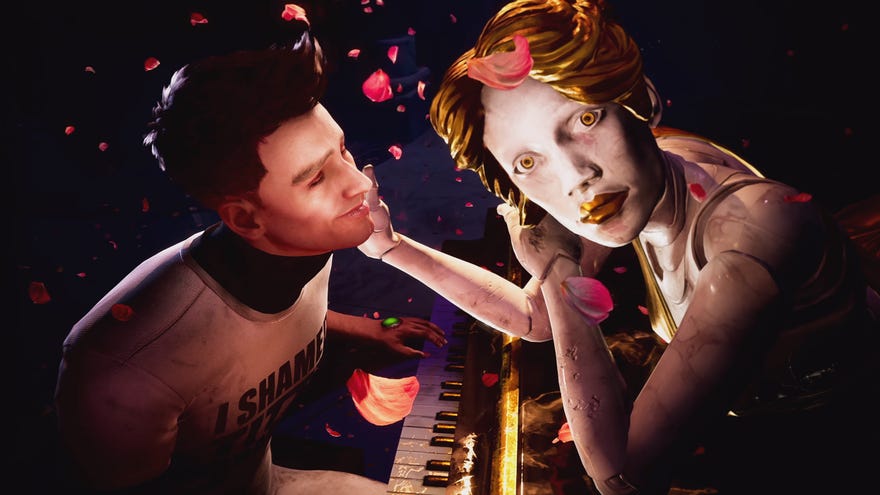Judas and Bioshock dev Ken Levine thinks video game voice-acting has a problem with "turn-based dialogue”
"I'd rather have my lines have a little bit of dirt and grit on them”
Many moons ago, I remember having a chat with Brendy about FPS Metro Exodus’s choice to have characters frequently speak over each other in conversation. It’s something I always appreciate in films (Brendy mentioned Fleabag, I brought up Shane Meadows), and although the flow of many of Exodus’ scenes were quite awkward, it was still refreshing to see a game break away from the common, unnatural back-and-forth line delivery. Bioshock and Judas’s Ken Levine has a name for this - “turn-based dialogue.” According to Levine, it’s “one of the biggest problems” in the way games portray conversations.
“They often record actors separately,” Levine told Dan Allen Gaming on YouTube. “then whoever is putting the dialogue together does this, what I call turn-based dialogue.” One actor says a line, there’s a fixed pause, another actor speaks. “That line plays. There's a half second buffer - it's always the same level of buffer - the next line plays.”
Levine’s got a solution, too. His approach is to “edit them, you know, talking on top of each other. I really encourage the actors not to just read the perfect words as they're written, but to bring as much naturalism to even these fantastical characters as they can.” The result, Levine says, is a “more human read,” resulting in “way better sounding dialogue, even with the exact same writing, the exact same acting, just the editing process.”
“It's amazing how many games just have this pre-baked pause between each line,” he continues. “We really pay a lot of attention to the editing of the dialogue, even if they're recorded separately, so they feel a little more organic.” In real conversation, says Levine, people interrupt each other and stumble over their words. “These are things that are hard sometimes to get [actors] to do, because they want to do a good job, and they don't want to mess up your lines. But I'd rather have my lines have a little bit of dirt and grit on them.”
I’m all for imperfections! The sterilisation of the human experience in the pursuit of an inoffensive, impersonalised glossiness is, hot take, bad for art and also culture, and anything that scrubs away at its calcification deserves a nice biscuit. I spoke to the composers of strategy game Manor Lords recently, and they told me how developer Greg Styczeń frequently opted for their less polished, bedroom mic takes over the studio edits.
So, I appreciate Levine’s approach here, even if he does admit in the interview that it’s his senior role and resources that allow him the luxury to focus on these things. In 2022, Bloomberg put out a report in which former employees at Ghost Story Games alleged erratic mismanagement on Levine’s part, with one employee calling Levine “a very hard person to work for.”
Judas, Ghost Story Games’s upcoming project, is slated for release in March of next year. Levine spilled many details earlier this year, including the presence of a giant robot dog for fast travel. Fortunately, Alice Bell (RPS in peace) has preemptively speedran the entire discourse cycle.






